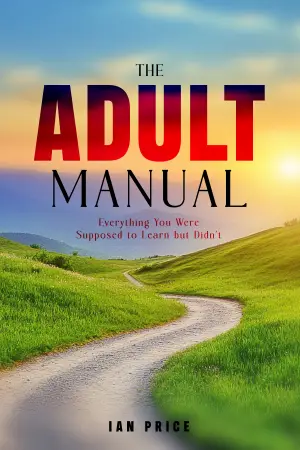I recently dived into a wonderful workbook titled [Title TBD], intended for children aged 7 to 13 who are looking to build their self-confidence and self-esteem. As a passionate reader and someone who values emotional development in children, I found myself curious about a tool designed specifically to foster those essential qualities.
The workbook is structured with simple prompts intended to be filled out daily, aiming to make kids feel happier, bolder, and more confident. I was particularly drawn to its promise of guiding children through the exploration of their strengths, setting goals, and using positive self-talk—tools I believe are foundational for lasting confidence.
One of the standout features of this workbook is how it effectively encourages children to identify their strengths. I found myself resonating with the idea of helping kids celebrate their accomplishments, no matter how small. The prompts guide children to acknowledge their successes, which can transform their self-perception over time. It’s an empowering exercise that not only boosts self-esteem but also lays the groundwork for a growth mindset.
On the other hand, while I absolutely loved this aspect, I did note that some kids might find the daily writing prompts a bit daunting at first. Maintaining daily entries may become a chore if the child isn’t initially motivated or accustomed to journaling. Encouraging parental involvement or finding creative ways to engage kids in these exercises may help counter this drawback.
Another positive element is that the workbook aids children in managing their worries and fears. The strategies presented are straightforward and approachable, allowing kids to confront anxieties at their own pace. Children can articulate their worries and begin to unravel the complexities surrounding them. I can see how this practice can lead to a more resilient mindset as they learn to express and address their feelings rather than bottling them up.
Yet, some readers mentioned a need for more guidance on the techniques for using positive self-talk and affirmations effectively. While I acknowledge that the book does introduce these concepts, a deeper exploration could have better equipped parents and children to implement these strategies in their daily lives. It was clear to me that the intention was great but execution could be expanded.
Despite these minor drawbacks, the overall tone of the workbook is uplifting and supportive, encouraging children to reflect on their progress daily. This reflection is invaluable, allowing children to acknowledge improvements, how far they’ve come, and the positives in their lives. This aspect truly aligns with the book’s goal of helping kids feel grateful for the good things around them.
The book also emphasizes the importance of social skills, teaching children strategies for making friends, which is particularly vital during the formative years. I appreciated the balance of emotional intelligence teachings with practical relationship-building skills.
In summary, [Title TBD] is a thoughtful, well-crafted resource for children on their journey to self-discovery and confidence building. The workbook fulfills its promise of facilitating growth in self-esteem through accessible prompts and exercises. With minor adjustments, particularly around daily engagement and guidance on self-talk, this resource could be even more impactful.
I wholeheartedly recommend this workbook to parents and educators looking to empower children and support their emotional growth. It’s a nurturing tool that serves as both a guide and a reflection of the inner strength every child possesses. A delightful addition to any child’s bookshelf!








